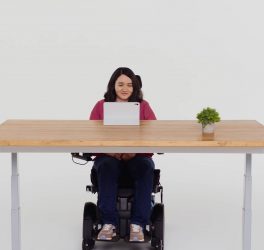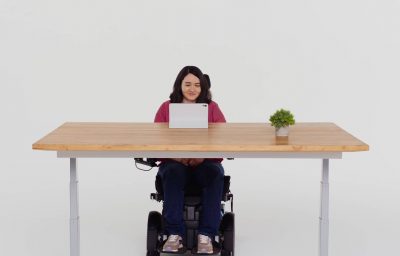
A group of Loughborough University academics have been awarded funding to examine how AI-voice-based technologies, such as the Amazon Echo, help people with disabilities live independently and explore how they may shape the future of social care.
There is a crisis in social care for people with disabilities and care providers are turning to AI for high-tech ‘solutions’ – with robot carer seals and the humanoid robot Pepper having made headlines in recent years.
However, current research focuses predominantly on medical or custom technological interventions rather than on disabled people’s productive adaptations of mainstream consumer technology to enhance their independence.
The Loughborough project will use a ‘Social Action’ research methodology to explore how people with disabilities are using technology to deal with access issues they face in their daily lives.
Social Action research involves research ‘participants’ – in this case people with disabilities and carers – in co-designing and steering the project from the outset. They will act as co-investigators, having a say at every stage of the data-gathering, analysis and dissemination phases of the research project.
As well as getting an idea of how tech is currently being used, the project will explore the wider opportunities that AI presents for the future of social care, for example, more efficient services, but also the risks, such as enabling further cuts to health and social care budgets.
Findings will be shared with disabled people’s organizations, key academic outlets, as well as parliamentary groups on AI, disability, and social care.








